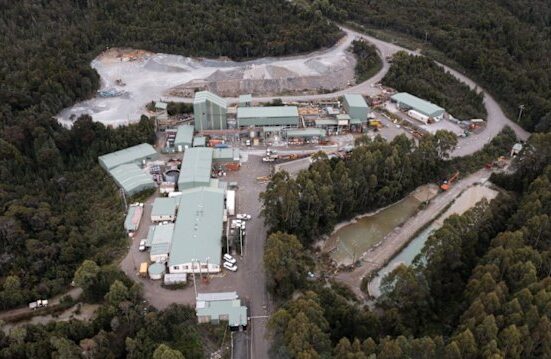In the serene waters off South Australia, a crisis of monumental proportions is silently unfurling beneath the waves. Marine animals are washing up on the shores, casualties of a toxic algal bloom fueled by soaring sea temperatures. The Albanese government’s refusal to allocate additional funding to combat this ecological disaster has sparked outrage, especially in the face of plans to host a global climate change summit in Adelaide. The Greens have condemned this decision, highlighting the dire consequences of inaction in the wake of a rapidly deteriorating marine ecosystem.
As the algal bloom wreaks havoc across a vast expanse of ocean, spanning Kangaroo Island, the Fleurieu and Yorke peninsulas, and the Coorong, its deadly impact is felt with each wave that carries lifeless forms ashore. Tens of thousands of marine creatures have fallen victim to this environmental catastrophe, with reports of mass mortalities affecting a staggering 278 species. The grim sight of dead fish, stingrays, and sharks littering Adelaide’s beaches serves as a poignant reminder of the urgent need for intervention.
Scientists, deeply concerned by the unfolding crisis, made a plea for government support to address the escalating ecological emergency. Their initial call for funding, made in response to a marine heatwave detected last year, went unheeded, setting the stage for the current devastation.
A group of 16 prominent marine scientists and experts penned a letter to Environment Minister Murray Watt, emphasizing the critical need for financial resources to mitigate the catastrophic consequences of the algal bloom. Their appeal, amounting to $40 million over a decade, aimed to explore strategies to combat the crisis and safeguard the fragile marine ecosystem from further harm. However, their entreaties fell on deaf ears, leaving them grappling with a situation spiraling out of control.
The nexus between the algal bloom and climate-driven impacts on the Great Southern Reef underscores the broader ramifications of unchecked environmental degradation. Rising sea temperatures, emblematic of climate change-induced disruptions, have exacerbated the crisis, signaling a grim future for marine biodiversity. The urgency of investing in a National Monitoring Program for the Great Southern Reef cannot be overstated, as it represents a pivotal tool in anticipating and responding to future ecological upheavals.
Scott Bennett, a researcher from the University of Tasmania, shed light on the challenges of assessing the extent of the crisis without adequate funding. His visit to South Australia underscored the need for robust financial support to conduct comprehensive investigations and chart a path towards ecological recovery.
The staggering economic threat posed by the warming waters off South Australia looms large, with projections estimating a $30 billion impact on the national economy over the next two decades. This sobering reality underscores the interconnectedness of environmental health and economic stability, underscoring the imperative for proactive measures to safeguard both marine ecosystems and financial well-being.
Despite the gravity of the situation, the government’s response has been tepid, with federal authorities deflecting responsibility to the South Australian government as the primary responder. While investments in predictive tools and monitoring systems are essential, the lack of direct action to address the root causes of the crisis raises concerns about the efficacy of current approaches in tackling environmental emergencies of this magnitude.
The refusal to allocate funding for the marine crisis in South Australia raises broader questions about the government’s commitment to climate action and environmental stewardship. The disconnect between hosting a global climate summit and neglecting urgent ecological crises in one’s own backyard underscores the need for a coherent and proactive approach to environmental governance.
The discord between governmental rhetoric on climate change and the stark reality of dead marine life littering South Australia’s beaches paints a stark picture of the challenges ahead. The juxtaposition of environmental devastation and political posturing underscores the urgent need for decisive action to address climate-induced ecological crises. As marine creatures continue to perish, their silent plea for intervention reverberates through the waves, reminding us of the delicate balance that sustains life on our planet.
In conclusion, the rejection of funding to address the ecological catastrophe in South Australian waters serves as a poignant reminder of the critical juncture at which we stand in the battle against climate change. The time for complacency is long past; urgent, coordinated action is needed to mitigate the impacts of environmental degradation and safeguard our precious marine ecosystems for generations to come. The fate of South Australia’s waters serves as a cautionary tale, urging us to heed the call of our oceans and embrace a future defined by sustainability, resilience, and unwavering commitment to environmental preservation.









Leave feedback about this